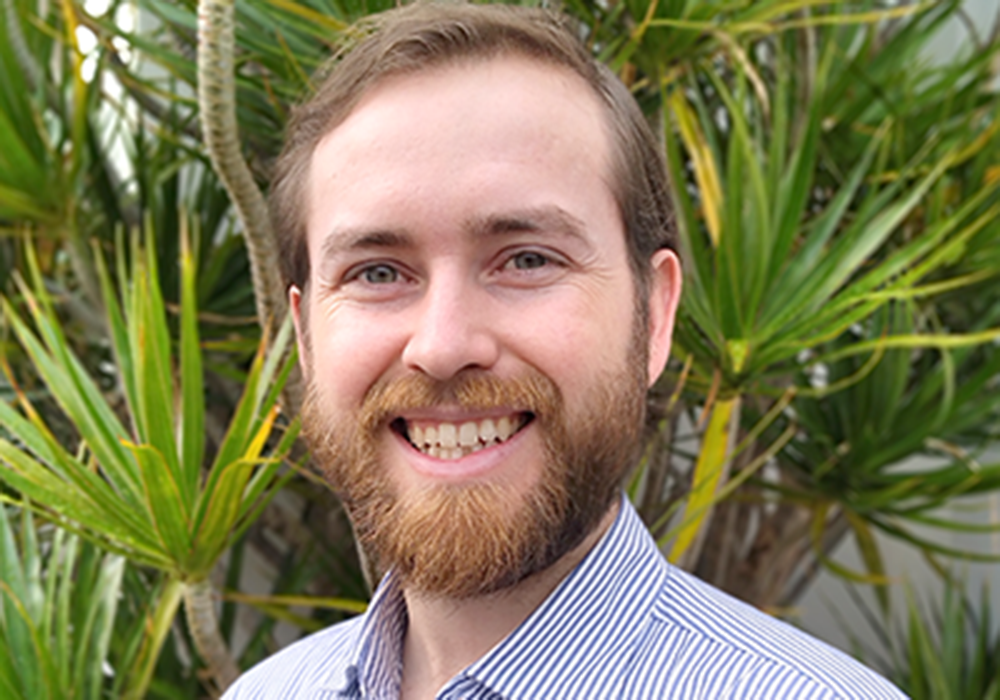Tim Stricklan: Empowering communities through economic education


With a background in financial education and entrepreneurship and with a passion for economic empowerment, Tim Stricklan finds himself at a pivotal point in his career.
He’s unsure of exactly which direction he will take, but he knows it will involve what he’s good at and what he’s fascinated by; identifying available resources and using them to flip a potentially dire situation into something prosperous.
A passion for economic equality
Originally from the state of Idaho in America, Tim has demonstrated this enterprising approach to work and life after recently arriving in Perth, where he's completed his MBA at The University of Western Australia with a focus on social impact.
As part of a trip to India to work, a one-week stop-over in Perth has become a permanent life-move as the COVID-19 pandemic forced the indefinite closure of the project he was going to be working on.
Deciding to instead channel his energy into study, Tim describes this turn of events as a “happy coincidence”, relishing the opportunity to upskill, whilst merging his background in finance with his passion for economic equality.
Empowering communities through economic education
Having spent the majority of his career in South America, Tim’s enthusiasm for economic education was first established when he was working as a missionary in Mexico.
Observing poverty first-hand, and the way it can stagnate individuals, businesses and communities, he knew this was an area where he wanted to make a difference.
“The people I was working with didn’t have the financial stability to move past where they were, and so that’s what got me motivated to work on the financial empowerment side.”
Appreciating the progress that can be made when knowledge is shared, Tim is a full-time student and part of CSI UWA’s alumni committee. He enjoys applying theory and rationale to his time spent in South America, where through equipping businesses with a solid financial strategy he understood that all too often it is a lack of education and access to resources that determines whether a business succeeds or fails.
The ability to measure the success of a business through applying basic financial principles is a fundamental element of economic empowerment and in reflecting on his time working in Paraguay, Tim recounted an incident in which it was uncovered that a client’s son-in-law had been skimming the profits of her business.
Tim views this knowledge as power, as his client was enabled to map out what went wrong.
“On one hand that’s devastatingly sad because there are financial and family issues, but on the other hand it’s liberating to understand, oh, I’m not successful because of a specific reason, and I can understand whether I decide to act on it or not. That knowledge is empowering.”
His inclination to share financial knowledge and resources again served Tim in his career when he worked as an entrepreneur coach to high school students in the year leading up to his cancelled move to India.
Having not received any formal training in finance himself, he is rewarded by the prospect of propelling individuals from where they are to where they want to be.
Professional development in social impact
As Tim’s previous work has been about resourcing businesses and entrepreneurs with the necessary tools for success, his MBA (Social Impact) has been the route to resource and upskill himself.
With strong beliefs that, as people we are morally obliged to share our privilege with others, he sees endless opportunities within the business space to really make a difference.
“Social impact isn’t just something you do if you have time, or to make you look good. It’s becoming a central part of business.”
The MBA’s provision of practical tips and tools to help aspiring social entrepreneurs put their ideas into practice, and the focus on the historical successes and failures of social impact, has also been particularly useful for Tim in reflecting on his own business ideas.
In particular, that of listening and sincerely collaborating with those you’re working to support.
“To listen and learn from lived experience and not just think, ‘Oh, I know what’s best’. Taking humility in social impact is something I have been exposed to and am learning more about.”
